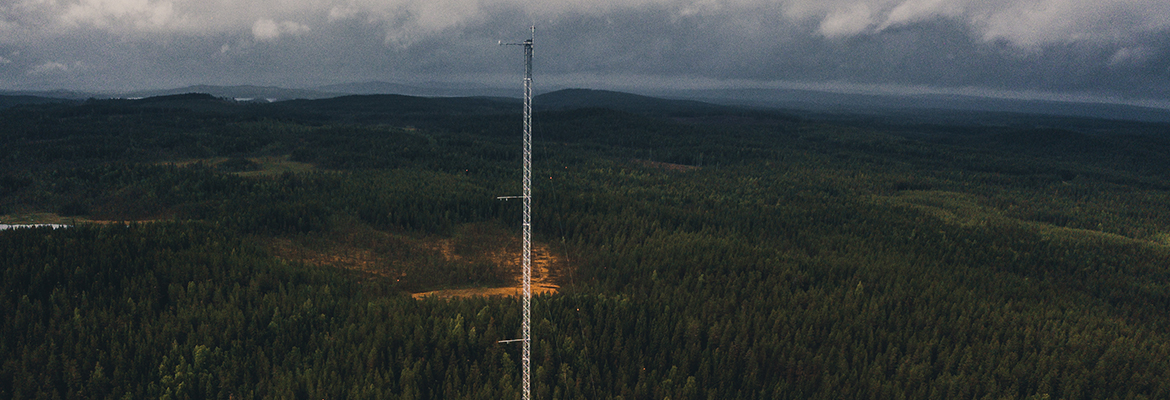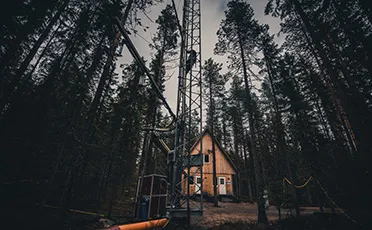
The ICOS Sweden consists of 11 stations, of which six are Ecosystem stations representing boreal forests and boreal to subarctic mires, and two are Ocean stations representing the Baltic Sea. The three Atmosphere stations are co-located with the three forest Ecosystem stations, representing a north-south gradient in the country.
The Swedish stations are essential for ICOS, as they provide otherwise scarce data from northern latitudes, which are undergoing the fastest climate change in the world. Climate warming could destabilise carbon stored in boreal forest soils, accelerate degradation of the mires and acidification of the seas, with concomitant impact on Sweden’s economy and commitment to enhance carbon sinks.
ICOS Sweden, as a national research infrastructure, aims at having a central role in the support of Swedish biogeochemistry research, at providing test sites for national inventory systems, and at providing sites and databases for advanced research. Furthermore, ICOS Sweden also aims at fostering collaboration and interoperability with other in situ environmental measurement networks and remote sensing programs active in Sweden, and at actively stimulating scientific studies and modelling efforts.
The ICOS Carbon Portal is located in Sweden and it is run by Sweden in conjunction with Netherlands.
ICOS Sweden is a national research infrastructure presently consisting of a consortium of five partners: Lund University (coordination), Gothenburg University, the Swedish University of Agricultural Sciences, Uppsala University, and the Swedish Polar Research Secretariat. In 2021, the Swedish Meteorological and Hydrological Institute (SMHI) will enter the consortium as host of the Tavastland ocean station.
Sweden Station Network
ICOS Sweden stations in the map. Hover over the stations for more details.
Contact ICOS Sweden
ICOS Sweden Focal Point
Tim Arnold, Associate Professor
Lund University
Sweden
contact-sweden (at) lists.icos-ri.eu
